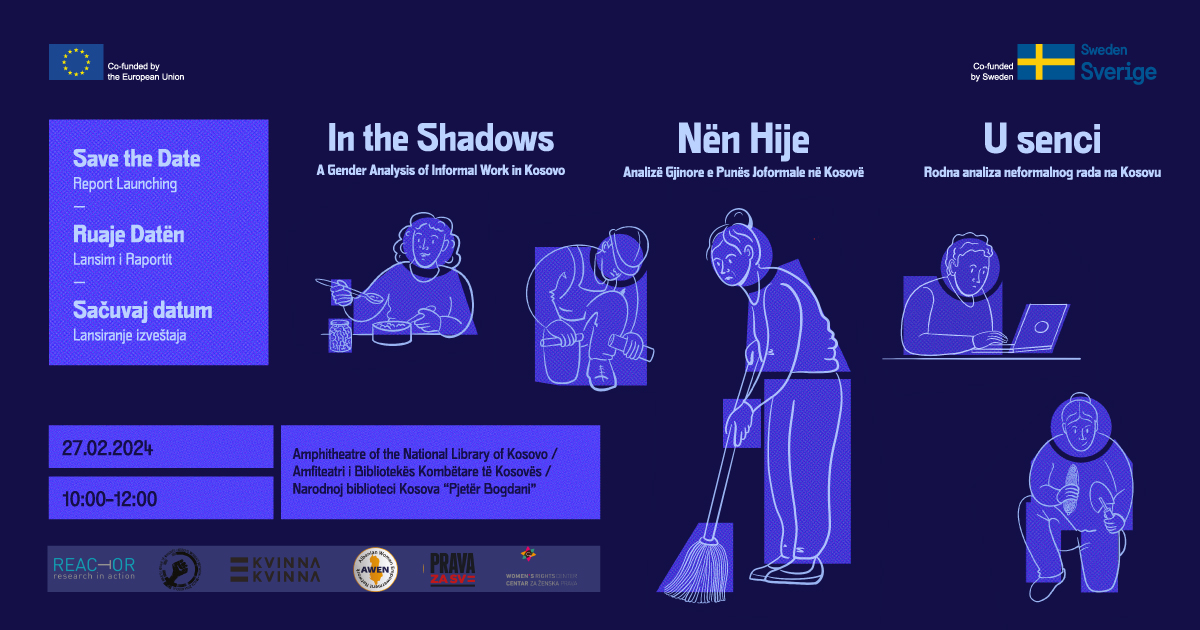On 27 Feb., the Kosovo Women’s Network (KWN) launched its latest research report: In the Shadows: A Gender Analysis of Informal Work in Kosovo. It addresses the need for gender analysis on women and men’s engagement in informality, towards informing the Government’s interventions to address the informal economy, ensuring an evidence-based do no harm approach.
The research found that 42% of Kosovars are engaged in informal work, and women are twice as likely as men to perform such work. They often work in the shadows, without contracts, steady employment, predictable working hours, dependable income and safe workplaces. Women’s unpaid care work, engagement in family businesses and agricultural labour are often hidden even deeper in the shadows. Consequences of informal work include insecure employment, unstable income, erratic working hours, unpaid overtime work, lower salaries for some, lower pensions, limited access to assets, health repercussions, labour rights violations, and tax evasion contributing to lost revenues for the state.
The Government can address informality by establishing more progressive taxation, improving labour inspections, expanding awareness about labour rights and benefits of registering work, simplifying administrative procedures for filing taxes and providing financial incentives. Strengthening social protection systems and investing in care can transform unpaid and informal work into formal work. These efforts must attend to the needs of diverse women and men, ensuring their protection and wellbeing.
Representing the Agency for Gender Equality in the Office of the Prime Minister, Edi Gusia thanked KWN for this serious report. She underlined the need to address informality because it “affects women disproportionately”, as “they are paid less and have less security”. Their contributions need to be recognised legally, she said, including health insurance and pensions.
Edona Rexhepaj from Kosovo Agency of Statistics said that the Secretariat engaged in addressing the informal economy will use the report’s recommendations to inform the forthcoming government strategy to address informality.
KWN Executive Director Igballe Rogova opened the event, underlining the urgency of the Government moving forward with the Law on Labour, as re-emphasised in this report. Ambassador of Sweden to Kosovo H.E. Jonas Westerlund also said that the government has a responsibility to implement the recommendations, including harmonising the Law on Labour with the EU Work-Life Balance Directive.
“We strongly encourage the Government to consider carefully the findings and recommendations, as well as to continue to engage women’s rights organisations and activists with expertise in working groups towards ensuring civil society engagement in drafting gender-responsive and inclusive policies,” said Alessandro Bianciardi, Deputy Head of Cooperation at the EU Office in Kosovo.
This Gender Analysis was co-funded by the European Union and Sweden, as part of the Action of the Coalition for Gender Equality in the EU Accession Process (EQUAPRO) “Advancing gender equality through the EU accession process”. The report is available on KWN’s website in English and will be available in Albanian and Serbian in a few weeks.

